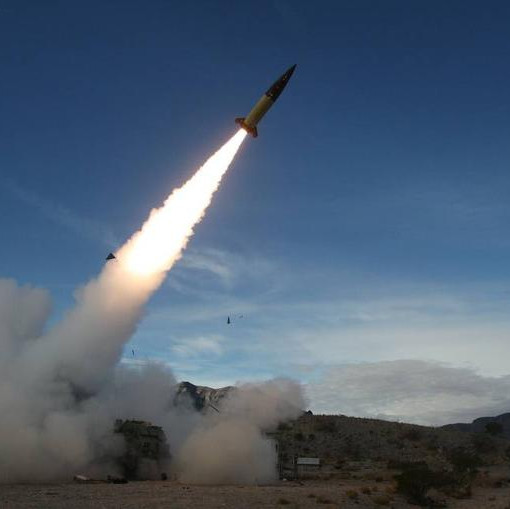The low profile of the US President Elect Barack Obama in judgment of ABM agreements concluded by the G. Bush’s administration with Czechia and Poland causes concerns primarily of Prague and Warsaw.
In Czechia the Upper Chamber approved the radar agreement concluded with the USA. 49 senators voted for and 31 voted against. It is not nearly unanimous approval. Let us recall that according to a recent public poll about 70 per cent of Czechs speak against installation of the American radar station in their territory. Mayors of 30 Czech cities sent a message to President Elect Barack Obama urging him to renounce the deployment of the radar station in their country because in their opinion it will pose a threat to Europe and provoke a new arms race.
In view of the current situation Czech Prime Minister M. Topolanek claimed that the last voting on the agreement in the Lower Chamber will be conducted only after Barack Obama takes the office of the US President. At the same time the results of this voting are hardly predictable because the ruling coalition may lack enough votes. The ruling right-wing/centrist coalition enjoys the support of only 98 of 200 MPs. The left-wing opposition may collect the similar number of votes. The left-wing MPs are going to forward censure motion. The opposition insists on a national referendum on the radar station.
The situation in Poland is also uncertain after President Leh Kachinski grossly falsified his telephone conversation with Barrack Obama having mistaken the wish for the reality. In particular Mr. Kachinski said that the new American president allegedly supported the ABM agreement , which was signed by the G.Bush’s administration with Warsaw. An assistant to the President Elect had to refute the words of the Polish leader in public. According to The Daily Telegraph “the Warsaw authorities recognized that after the telephone conversation of the Polish President with Barack Obama the chances for implementation of the project are not more than 50 per cent”.
This scandal was toped up with other ones caused by ill-considered statements of Polish politicians including Foreign Minister R. Sikorski about the personality of the US President Elect. Therefore the Polish Foreign Minister had to make great efforts to burke all these scandals. He also tried to “launch bridges” with Barack Obama’s team mates: his adviser Strobe Talbot, Senator Barbara Mikulski (Democrat) and Congresswoman Ellen Tauscher (D) to promote continuity of the Bush’s NMD policy by the team of the President Elect.
It is clear that the authorities of Poland and Czechia will do their best to ensure that the new US President would approve the ABM system plans of his predecessor.
Originators of the European ABM System are active in the United States in defense of their creature. Lt.-General Henry Obering, Director, the US Missile Defense Agency, also urges Barack Obama to refrain from abandoning the plans to deploy ABM system elements in Eastern Europe. In particular, according to him “renunciation of ABM system deployment in Eastern Europe , firstly, will weaken the defense capabilities of the US forces deployed in the region, as well as friends and allies of the USA. Secondly it will seriously undermine the leading position of the USA in NATO”. The Director said that his colleagues and he are going to submit to the new president’s administration all necessary documents for further implementation of the US ABM system element deployment program. “We went a long way since 2000 when this program was launched, and we’ll do our utmost so that the results of our work would not go to the plughole”, said Obering.
Daniel P. Fata, Deputy Assistant Secretary of Defense for European and NATO Policy in the Department of Defense, urges Barack Obama to continue the G.Bush’s policy and provide funds for construction of the GMD site elements in Poland and Czechia as it was planned earlier. He believes that the latest missile test fires in Iran confirm the necessity to build a shield against missiles of the rogue states.
Probably it is the advocates of the US ABM system in East Europe who promoted the decision of the NATO Summit supporting the American ABM system project. According to Polish Foreign Minister R. Sikorski the US ABM system elements deployed in Poland would become a part of the entire NATO ABM system. He emphasized that “the NATO Council meeting has taken into consideration the fact that Poland and Czechia signed agreements on deployment of the US ABM system elements in these countries” and “that the technological elements of the system in each probable scenario will become a part of the NATO ABM system”.
Meanwhile according to experts the details of the NATO ABM system have not been finalized yet, while various scenarios of this system use should be prepared prior to the NATO meeting of foreign ministers in Krakow (Poland) in March 2009. Thereafter this problem is expected to be discussed at the NATO Summit in April 2009.
At the same time the fact that the unanimous support of the US plans to deploy its ABM system elements in Europe takes place against the background of a serious opposition to the American project, cannot escape the astonishment. For example, French President Nikolas Sarkozy (Chair of the EU) claimed on November 14 at a press-conference in Nice following the EU-Russia Summit that the deployment of the US ABM system in Europe will not only fail to promote European security and “will perplex everything”. N. Sarkozy urged Russia and the USA to stop threatening to each other with the ABM systems and missiles.
Italian Prime Minister Silvio Berlusconi expressed an opinion during his visit to Turkey that Russia was provoked by America's plans to deploy missile defense elements in the Czech Republic and Poland. According to him, as a result “we came to a situation that was our evil during the Cold War: confrontation of two nuclear arsenals”. Italian Foreign Minister Franco Frattini supports his boss and believes that for the sake of rapprochement with Russia the United States should abandon the plans to deploy the ABM system elements in Eastern Europe. According to F. Frattini “the USA, Europe and Russia should jointly strive to build a common security system”.
Even in the UK, the best ally of the USA, where the ABM system plans were never radically opposed, 50 MPs (Labor Party) claimed that the deployment of the ABM system elements in Eastern Europe may evolve into a new arms race. The authors of the statement relied on the recent public poll data, which confirmed that two thirds of Englishmen are sure that the deployment of the third US GMD site in Europe just only reduces the level of security.
It is not impossible that the intention of Moscow to deploy the Iskander missile systems in the Kaliningrad Region in response to the deployment of the US ABM system in Europe also played its role in stirring up the discussion on the US ABM system problem. During the discussion Russian President D. Medvedev once again claimed that “Russia will renounce the measures in response to deployment of US ABM system elements in Europe if the new American administration revises the decision on their deployment in Poland and Czechia”.
What will a verdict of the new American President? We will know it shortly. Of course, it would be better if this verdict were a step forward towards normalization of relations between Russia and the USA, but not vice versa.









